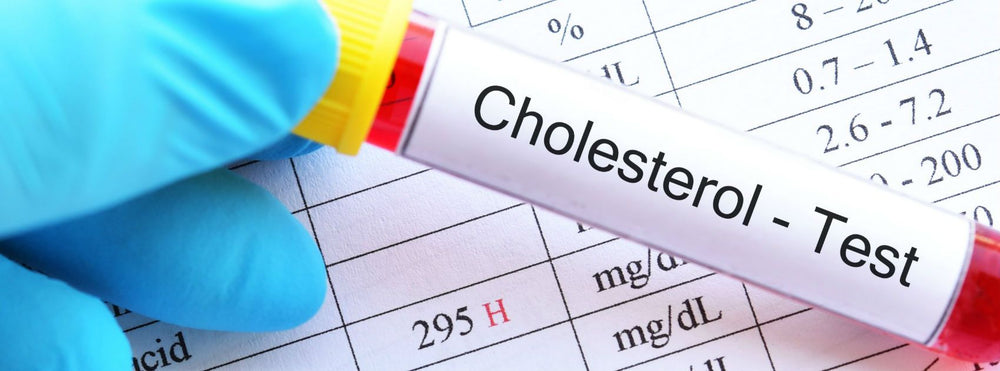How to interpret your cholesterol test results

When you get a cholesterol test back, you’re typically given 4 numbers: The total cholesterol, HDL cholesterol, LDL cholesterol and triglycerides. Here’s what you need to know to interpret the results like a pro:
Total Cholesterol
Total Cholesterol: The Total Cholesterol should fall below 200 mg/dL. But that total can be made up of various combinations of good cholesterol, bad cholesterol and triglycerides. And even though those combinations can yield the same total result – they may have very different health implications. Most people remember only their total cholesterol number, but this is actually the least important piece of data from the test! So, don’t focus on it.
HDL (high-density lipoprotein)
HDL: HDL (high density lipoprotein) is the “Happy” cholesterol and you want to keep it High. This is cholesterol that’s not depositing in your arteries and is actually on its way out. So you want as much of your total cholesterol in this form as possible. In men, we like to see this number above 40 mg/dL. In women, it should be over 50 and ideally over 55 mg/dL. In general, the higher the number the better. HDL numbers that fall below these minimums are a potent risk for heart disease, especially if they fall into the 20s or 30s. Some people are under the misconception that a high HDL completely makes up for a high LDL cholesterol level. That’s actually not true. Each contributor to the Total Cholesterol number needs to be looked at separately because each can be of significance.
LDL (low density lipoprotein)
LDL: LDL (low density lipoprotein) is the “Lousy” cholesterol and you want to keep it Low. This is the cholesterol which is finding a place to park in your arteries, so you want as little of your cholesterol in this form as possible. Most cardiologists would say that EVERYONE should have an LDL below 130 mg/dL. As you accumulate risk factors (like high blood pressure or smoking for example), your LDL should fall below 100 mg/dL. To put things in perspective, people who live long well have an LDL of around 90. If you already have documented heart disease (because you’ve had a heart attack, a stent, bypass surgery, a stroke, etc.) or YOU HAVE DIABETES, your LDL should fall below 70 mg/dL. There is even data to suggest that getting your LDL below 50 yields additional risk reduction benefits. It’s at very low LDL levels that you can start to see REGRESSION of plaque build-up.
Triglycerides
Triglycerides: TG’s are mostly fat and only about 20% of a TG particle consists of cholesterol. That’s why you can’t add up HDL with LDL and TGs and get the total cholesterol number.
How is total cholesterol calculated?
The actual formula is more like:
Total Cholesterol = HDL + LDL + TG/5
Normal TG levels fall below 150 mg/dL. But it’s important to point out that TGs exist on a completely different scale as compared to HDL and LDL. The lowest TG reading I’ve ever seen (in a patient on no medications) is 27 mg/dL. The highest? Over 3000 mg/dL. So TGs have a very broad range and that’s important to keep in mind when we look at cholesterol profiles over time. A 30-point swing in LDL would be considered a big deal. For TG’s, 30 points would be considered inconsequential.
If your last cholesterol test didn't turn out perfect, don't panic! There are medications that can help. Here's a blog that explains what you can do to help improve each of your cholesterol numbers without just relying on drugs.

Try our Newest Bar!
Cherry Pecan Bar
Discover the perfect harmony of cherries and pecans in our Cherry Pecan Bar. Montmorency cherries, renowned for their antioxidant and anti-inflammatory properties, are combined with premium pecans to create a delicious blend of sweet, tart, and nutty flavors. Packed with white chia seeds, flax, and walnuts, this bar offers more than just taste—it's a superfood-filled snacking option. Our Cherry Pecan Bar is the perfect choice, whether you're on the go or seeking a nourishing treat.
Get heart health tips and articles like this, delivered right to your email.
New articles every week.
You may also like...

You don’t need to avoid foods with cholesterol…except for these





